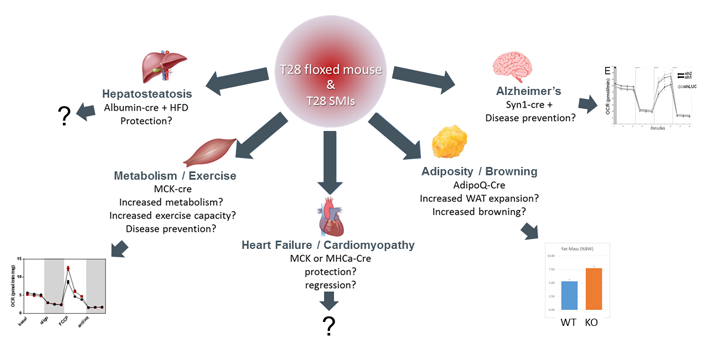Using discovery based approaches we have identified a novel protein called T28, which we suspect transcriptionally regulates pathways that regulate mitochondrial function. T28 normally acts to slow the turnover and production of mitochondria in the cell, thus it basally represses mitochondrial flux. When the cell requires more energy or has a high demand on mitochondria, T28 gets degraded and allows mitochondrial flux to increase. Increasing mitochondrial flux leads to increases in the number of younger and more efficient mitochondria in the cell, therefore increasing energy output. Thus, if we can genetically repress T28, or design therapies that block the activity of T28 then we have a potential therapy that promotes mitochondrial flux and increases mitochondrial health.
In these studies we will study the ability for inducible, tissue specific deletion of T28 to improve mitochondrial health in tissues of interest (heart, muscle, adipose and brain) to prevent and regress cardiometabolic disease. Furthermore, we will also test the ability for three small molecule inhibitors (SMIs) of T28, to modulate mitochondrial activity both in vitro and in vivo.


